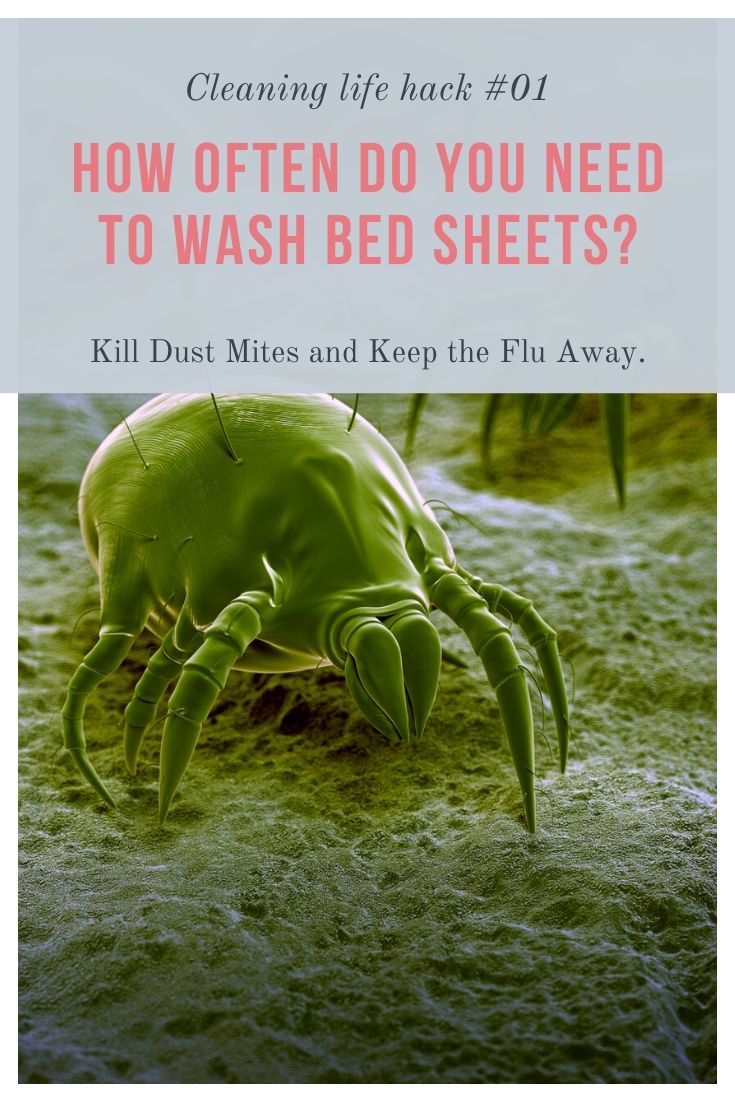Last Updated on May 26, 2025 by Casey
Find the utmost comfort in pristine bed sheets. How often should you wash bed sheets?
People often say that home is where the heart is but in some cases, the bed is where the utmost comfort lies. Sometimes you want nothing more than to bury yourself deeper into your sheets as you chase dreamland. More often than not, it’s what you look forward to the most when your work shift is ending or if your classes are almost done for the day. Nothing beats the warm welcome that your bed can offer you every day. This is the very reason why it is important to be more aware of how it can affect your overall health.
First, let’s get down to the basics: What are you usually surrounded by when you sleep? There are your pillows, your occasional plushies, your blanket, the bed foam and your bed sheets. For now, the focus will be on the ever present bed sheets that cover your bed. What’s a bed sheet, exactly? It can be as simple as the cloth barrier between the foam that you lay on and you. Any cloth that separates you from the foam is a bedsheet. If you’re feeling fancy, you can buy those fitted ones with the elastic corners keep the sheet firmly in place.
Bedsheets were recorded to have first been used in the 15th century. During that time, linen was the most commonly used material for it, carefully woven and crafted by the Egyptians. It was a laborious and tedious job to do since machineries to make this cloth was not invented yet. Europeans were the ones that first brought usage of bed linens to the New World AKA the 19th century, and from then on, bed sheets were considered a mainstream item to have in every American household.
Let’s break down the facts about your bed sheets:
- Bed sheets are a must for anyone that wishes to make their beds a bit more comfortable and hygienic. Even though bed sheets are primarily used to cover our beds, there are still health issues that can arise should you be irresponsible with caring for them.
- Studies have shown that humans spend a third of their lifetime in bed. Sometimes we may think that our sleeping time is short lived but in reality, it’s not the only time you spend using your bed, homebodies can attest to that. Aside from sleeping, sometimes work is done there, eating, and reading amongst other activities. Which is why it can house many hidden organisms.
- Beds are home to countless microscopic organisms. The dirt you bring from the outside, the crumbs that fall off while you’re eating, the excess lotion you smear on your bed sheets as you do your nightly routine- these are only a few of the bacteria-bringing elements that make a home on your bed.
Philip Tierno, a microbiologist and pathologist at the New York University School of Medicine listed down the many microorganisms that may live on your bed sheets. “You have spores of fungi, bacteria, animal dander, pollen, soil, lint, finishing agents of whatever the sheets are made from, coloring material, all sorts of excrements from the body including sweat, sputum, vaginal, and anal excretions, urine milieu, skin cells … Plus there are cosmetics that people use — they put oils and creams on their body, all of that is in that milieu.”
- Sitting on your bed all day alone can trigger your allergies, asthma and acne. Your dirty bed sheets can cause breakouts that lead to scarring and acne on your back and face. Allergens such as dust mites can also make a home on your bed sheets. According to the Asthma and Allergy Foundation of America, the average person sheds more than a gram of dead skin per day that feeds a million dust mites. This could also trigger anyone with asthma and could cause a person to develop the flu due to all the germs that a bed gathers if not cleaned frequently.
A clean bed sheet makes for a happy bedtime
- Staying in bed all day isn’t a crime but make sure to always keep your bed clean to have a much better and comfier resting experience.
- Wash/Change your sheets once every week. Regularly washing your bed sheets prevents the spread of bacteria in your bed and keeps it from latching on to you. Dr. George Ogwang, a dermatologist at The Skin Specialist’s Clinic in Wandegeya, also suggests that ironing your sheets after you wash it can also keep the infestation of dangerous microorganisms into your skin under control.
- To further assure the cleanliness of your bed sheets when you’re washing it by yourself, only fill half of your washer to make sure the machine cleans every corner of your dirtied sheets.
- If you wish to avoid unwanted folds and wrinkles on your bed sheet, it is also best to immediately fit in onto your bed as soon as it’s fully dry.
- Pets are another story when it comes to the cleanliness of your sheets. Maybe it would be best to change your sheets twice instead of once a week since fur and sometimes microorganisms could double with you and your pet frequenting your bed.
Clean bed sheets not only make your bed a cozy and welcoming place after a long day at work or in school. Laundering bed linens is an important part of any illnesses and allergy prevention routine. Make it a point to remember to change your sheets regularly and reap the benefits of a good night’s sleep and better health.



